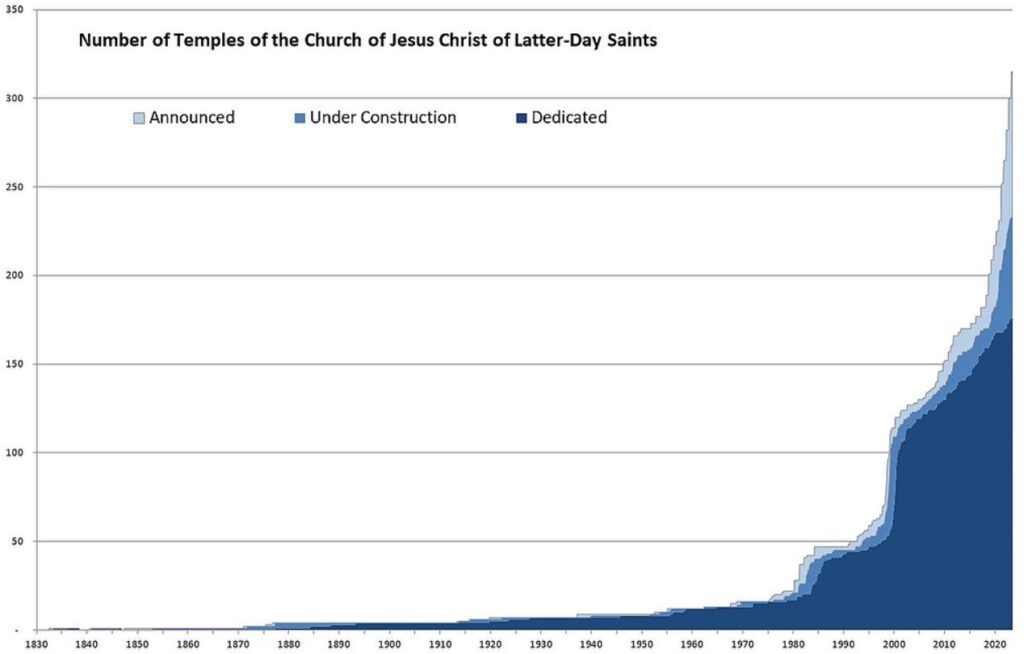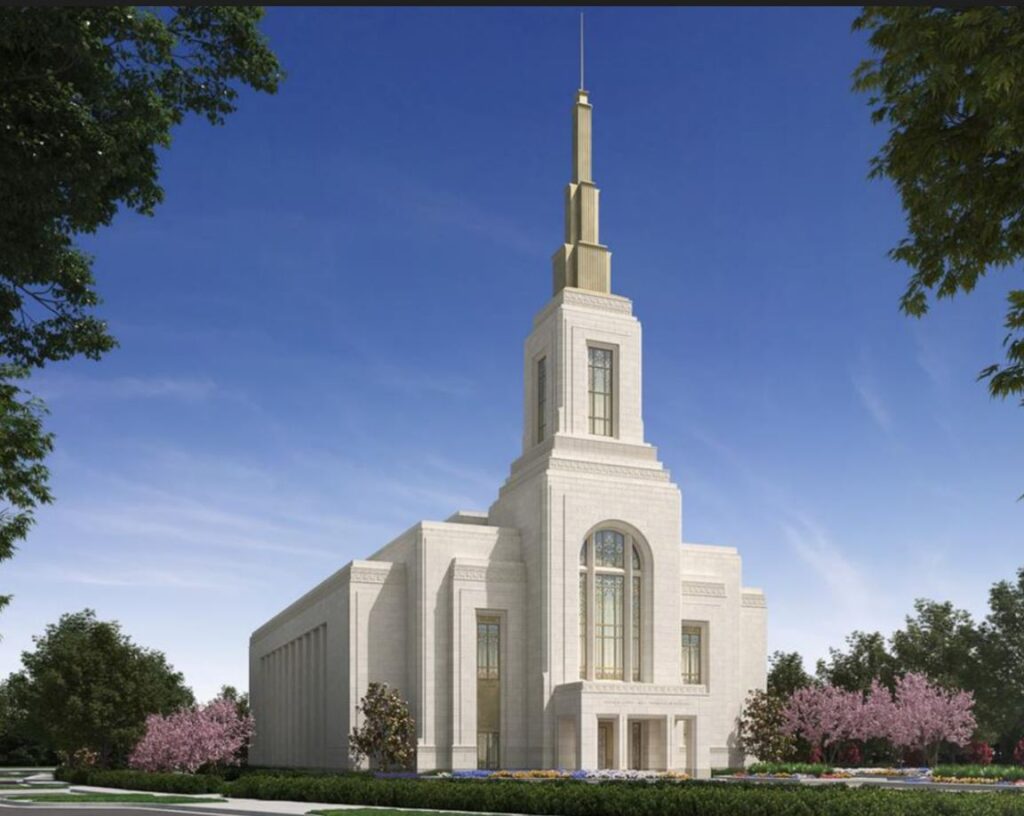What makes a church great? What would make you proud of your church? And what would make you ashamed of your church?
Churches are great when they help people.
My wife is currently the stake communication director and she’s the person of contact on some public websites. She often receives calls from non-members of the church who are in dire need. She used to forward these messages to the appropriate bishops, until one asked her why she was doing this? They pointed out that the church handbook explicitly says that they should not regularly help non-members. She was stunned. Out of curiosity, she googled “churches that help people” and many came up in the area. She went to one their websites and on it they had a link for people in need. Clicking on the link, they listed various questions and contact information, but they also made it clear that they would help people regardless of whether they attend their congregation or not. We had once visited this church and we knew that they were not a rich church, but they were trying to help their neighbors.
We also volunteer for a county-sanctioned homeless camp that is strictly regulated. Members of the camp are carefully vetted and must follow many rules. The camp is normally invited to stay at a church’s parking lot for a three-month period (at which point they move to another church’s parking lot). The church provides the camp with limited electricity and a water connection. The camp provides their own porta potties – the camp members never enter the actual church. I am sad knowing that our church would never host such a camp, citing liability concerns (as if no other church has these same concerns).
The church does offer some amount of humanitarian aid in other countries, although we have no way of knowing how much aid they provide.
Churches are less great when they seek their own interests, bully people, and cause harm.
The one thing that our church does WAY better than these other churches is accumulate money. The church does not open its books to anybody, but it is estimated that the church has about $150 billion dollars in assets. They were recently given the largest fine of its kind for hiding money in various shell companies so that it could not be traced back to the church (just as Jesus would do).
It is estimated that a miniscule amount of this money goes to helping the poor. Not only are they not using this money to help the poor, but they are using their deep pockets as an excuse to NOT be involved in any charitable venture that could potentially include liability.
So the question is – if Jesus commanded us to help the poor and we each have limited resources to use for this effort, should we be donating our resources to a very rich church that does very little to benefit poor people? Or should we be donating our money to organizations that do more to help the poor?
This begs the question – what is the church spending their money on? They would say that they need every dime to build temples (although their temple budget is still estimated to be a very small portion of their overall wealth).

President Hinkley announced 78 temples over a 13-year period. President Monson announced 45 temples over a 10-year period, and President Nelson announced 168 temples over a 6-year period.

Why the need for so many temples? The church says that it is building temples because they are needed. That may be true in many cases, but here in Washington State:
- A new temple was recently announced in Tacoma, even though the Seattle temple is underutilized and often understaffed.
- They recently built a temple in Moses Lake (which is literally in the middle of nowhere) and is a one-hour drive to the Spokane temple.
There are other theories on the sudden push for more temples:
- Many believe that it’s to give the illusion of church growth (i.e. of course the church is growing – why else would they be building so many temples?
- Other believe that they need to at least make a show of spending some of their 150 billion dollars in order to keep their tax-exempt status.
- Some theorize that members that live close to a temple are more likely to pay a full tithe to get a temple recommend.
Building temples is fine, but not when we force them on communities that do not want them. Most temples today are announced without any discussion with the communities involved (often with no regard to city ordinances). Two recent examples are the temples announced in Cody, WY and Fairview, TX. Both are meeting strong resistance as the building plans violate the cities building codes. The church is suing these communities to allow them to build their temples in the manner that the church wants to build them. Apparently, the amount of exterior lighting and the size of the steeple has become very important to God (even though not all temples even have steeples).

A few days ago, the mayor or Fairview, TX issued this statement: “Your attorneys from Salt Lake City are very smooth, calmly starting the conversation with the fact that they have dealt with municipalities many, many times, and essentially have forced these communities to take an unwanted large building. What a thing to be proud of. Their message to us is that fighting this gigantic building proposed is really just a waste of our time. I think the word for this attitude is extreme arrogance, and it’s what we in Fairview will remember about the LDS representatives. I will also add – shame on the local leaders for stabbing our town in the back. They knew exactly what impact this building would have on our town, and obviously don’t give a flip – really disappointing.”

But the church lawyers don’t exist just to protect their wealth and to force cities to build their temples. The church has a legal hotline that every bishop is supposed to call when they learn that child abuse is occurring. This hotline is largely to protect the church and the abuser. When these cases become public, the church falls back on legalese to assure people that they are within the law (which seems preposterous as a church is supposed to follow a higher law).
My wife is the LDS representative for our local interfaith group, and we have used this as an excuse to visit many of the other churches in our area.
Most Christian churches in our area pray much differently than we do. We open and close our meetings with a very perfunctory prayer that is not meant to last more than 30 seconds. They tend to offer much more meaningful prayers, mentioning members by name and asking for help. They also tend to talk about Jesus and his message a lot more than we do (even though our church services are longer).
One Lutheran minister said something very profound. In the middle of a discussion on the Nicene creed, he stopped and said that he doesn’t really care that much whether God is one person or three persons – it just wasn’t that important to him. He then went on to talk about what was important to him.
It is interesting to compare the small liberal congregations (that are clearly fading away – their numbers are small and they have no young members) with the larger megachurches (many of whom revel in an imagined persecution complex). We even attended the Fame church on Capitol Hill (an African American congregation) and they were very welcoming.
The most interesting church that we attended was the Sikh Gurudwara. Everybody was super friendly, but what stood out was:
- They start out by feeding everybody (and their food is good). Their philosophy is that you cannot learn when you are hungry.
- While it is expected that men cover their hair in their daily lives, many of the men did not and they did not seem to be treated any differently than those that did.
- They did not really have a meeting – it’s more of an ongoing meditation session interspersed with some comments on current events. Both men and women are empowered to make these comments.
Of course, most of the discussion was in Punjabi, so I can’t say that I learned much.
At this point, it is safe to say that Mormonism is no longer working for me the way that it once did.
- I feel extremely disconnected to the general membership (although I still have friends at church that I hope to keep).
- I no longer believe that the leaders are divinely inspired.
- The church is engaging in behaviors that make me ashamed to be associated with it.
That said, none of the other churches really spoke to me either. I will probably never feel at home in a church again.

